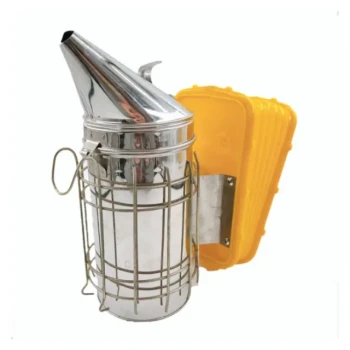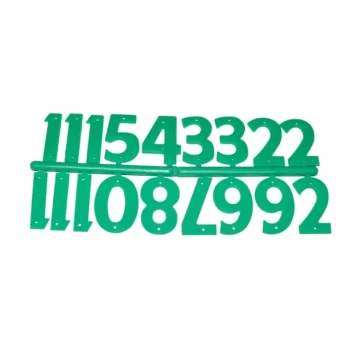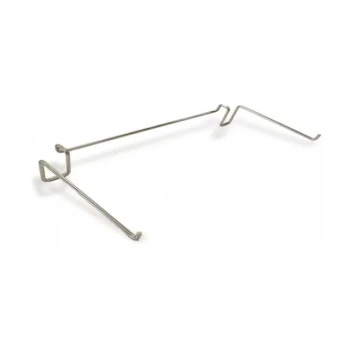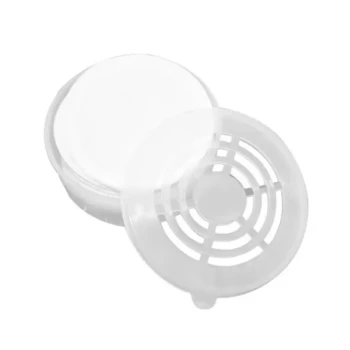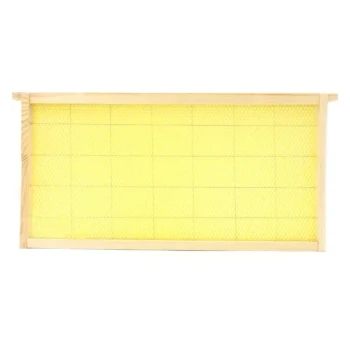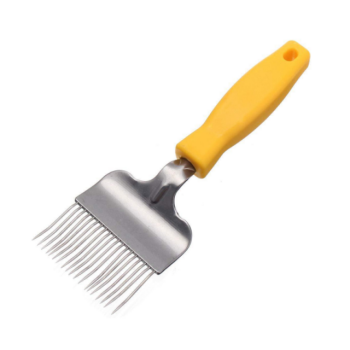In short, harsh chemicals should be avoided because their strong, artificial scents are detected by the honey bee colony and interpreted as a threat. Bees communicate and sense their world primarily through smell. The residue from detergents, bleach, or fabric softeners can trigger a defensive response, leading to agitated bees and an increased likelihood of stings during a hive inspection.
Your beekeeping suit is not just protective gear; it is olfactory camouflage designed to help you blend into the hive's environment. Using harsh chemicals strips away this camouflage, instantly marking you as a foreign intruder to the bees.
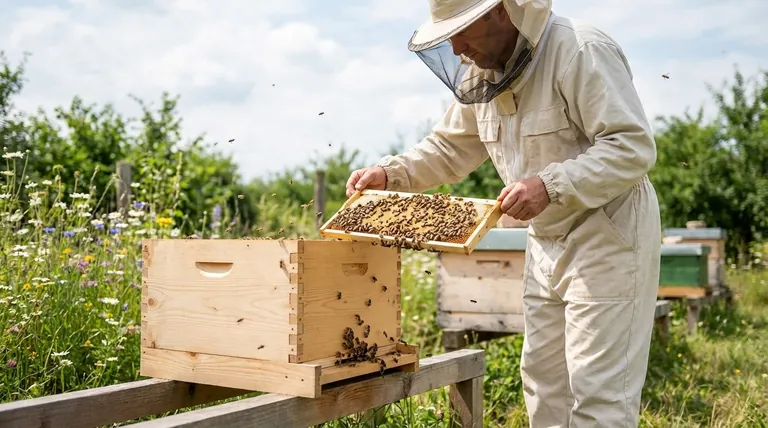
The Bee's World: A Symphony of Smells
To understand why chemical residues are so disruptive, you must first understand how a honey bee colony perceives its world. It is an environment dominated by scent.
Pheromones: The Hive's Chemical Language
Bees use complex chemical signals called pheromones to communicate nearly everything. There are pheromones to signal alarm, guide foragers back to the hive, and let the colony know its queen is healthy.
This chemical language is subtle but critical for the colony's survival and cohesion.
How Foreign Scents Cause Disruption
Strong, unnatural odors from cleaning chemicals don't just smell strange; they actively interfere with the bees' ability to communicate. A pungent scent can mask the crucial pheromones that maintain colony calm.
When bees can't properly receive these signals, confusion and anxiety can spread throughout the hive.
You Become the Threat
Bees are conditioned to associate strong, unfamiliar smells with danger. Predators like skunks or bears carry distinct odors that trigger a defensive alarm.
When your suit carries the residue of a harsh detergent, the bees may not be able to distinguish you from a natural predator, immediately putting them on high alert.
The Practical Consequences of Using Chemicals
Introducing disruptive scents into the hive isn't just a theoretical problem. It has direct, negative consequences for both you and your bees.
Increased Defensive Behavior and Stinging
The most immediate result of agitating a colony is an increase in defensive behavior. Bees will become more aggressive, more likely to issue alarm pheromones (which smell like bananas), and far more likely to sting.
Difficult and Ineffective Hive Inspections
A calm colony allows you to work methodically. An agitated one makes it nearly impossible to conduct a thorough inspection.
You will struggle to properly check for pests like Varroa mites, assess the queen's laying pattern, or identify signs of disease when the bees are actively trying to drive you away.
Unnecessary Stress on the Colony
Consistently triggering an alarm response puts the entire colony under stress. This can divert their energy from vital tasks like foraging, brood-rearing, and honey production.
Over time, this repeated stress can weaken the colony and make it more susceptible to disease and other pressures.
Proper Suit Care: Working With the Bees
The goal is to make your suit as neutral as possible. This means removing bee products like propolis and venom without adding any new, alarming scents.
How to Wash Your Suit
The best method is to wash your suit with plain water only. For stubborn stains or heavy soiling, use a small amount of a completely unscented, non-biological soap.
Rinse the suit thoroughly—multiple times if necessary—to ensure all soap residue is completely removed. Never use fabric softener or scented dryer sheets.
Proper Drying Technique
Heat can "bake" residual scents into the fabric and damage the material of your suit.
Never use a machine dryer. Instead, hang your suit to air-dry in a well-ventilated area that is out of direct sunlight, which can degrade the fabric over time.
Correct Storage is Crucial
Where you store your suit matters just as much as how you clean it. Keep it in a dry, ventilated space away from any strong chemical odors.
Storing it in a garage or shed next to gasoline cans, pesticides, or fertilizers will allow it to absorb those odors, defeating the purpose of careful washing.
Making the Right Choice for Your Colony
Your approach to suit maintenance directly impacts the well-being of your bees and the safety of your inspections.
- If your primary focus is calm inspections: Always wash your suit with plain water, using a minimal amount of unscented soap only when absolutely necessary.
- If your primary focus is the health of your colony: Store your suit in a clean, neutral environment to prevent it from absorbing scents that cause unnecessary stress.
- If your primary focus is extending the life of your gear: Always air-dry your suit away from direct sun or high heat to protect the fabric's integrity.
Treating your suit with care is a direct reflection of your respect for the colony's complex sensory world.
Summary Table:
| Chemical Impact | Consequence |
|---|---|
| Strong Artificial Scents | Mask calming hive pheromones, causing confusion. |
| Residue from Detergents/Bleach | Identified as a threat, triggering defensive behavior. |
| Fabric Softeners | Creates a persistent foreign odor, increasing sting risk. |
| Proper Care Alternative | Use plain water or unscented soap; air-dry away from sun. |
Ensure your inspections are calm and productive with the right gear and knowledge. HONESTBEE supplies durable, high-quality beekeeping suits and equipment to commercial apiaries and distributors. Our wholesale-focused operations help you protect your colonies effectively. Contact HONESTBEE today to discuss your equipment needs and keep your hives healthy and stress-free.
Visual Guide
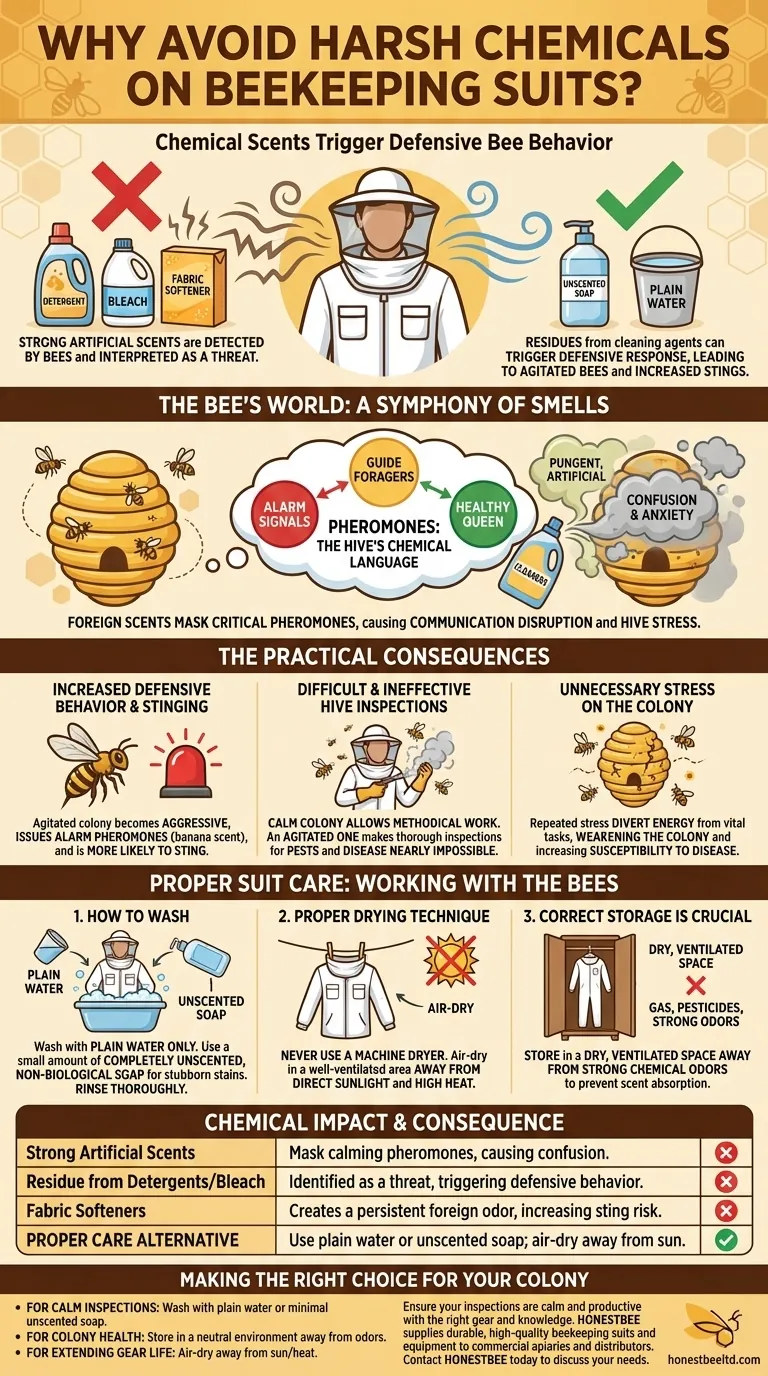
Related Products
- Wholesales Dadant Size Wooden Bee Hives for Beekeeping
- Yellow Plastic Bucket Pail Perch for Beekeeping
- Professional Insulated Plastic Bee Hives
- Long Langstroth Style Horizontal Top Bar Hive for Wholesale
- Professional Insulated Winter Hive Wrap for Beekeeping
People Also Ask
- What features enhance ventilation in beekeeping suits? Maximize Comfort with Strategic Mesh Panels
- Why is professional Protective Clothing essential? Elevate Precision and Safety in Large-Scale Beekeeping Operations
- What is the function of PPE during Africanized honeybee removal? Vital Protection for Urban Swarm Operations
- Why is professional protective equipment considered essential for managing African honeybees? Ensure Apiary Safety
- What are the preparatory steps before washing a beekeeping suit? Maintain Peak Safety and Durability
- What are the differences between a full and a partial beekeeping suit? Find the Best Fit for Your Apiary
- What should be considered when selecting a beekeeping suit? Find the Perfect Balance of Protection & Comfort
- Are beekeeping suits also wasp-proof? Essential Safety Guide for Apiaries & Distributors







